Doctor en nutrición y producción de Rumiantes de la Universidad Federal de Lavras (Brasil) y Zootecnista de la Universidad de Sucre. Linea de investigación en programación fetal. Interesado en entender como vacas lidan con la restricción nutricional durante la gestación para soportar el crecimiento fetal. Por tal razón he trabajado en conocer los cambios específicos de las matrices durante la gestación, así como los factores que contribuyen al lento crecimiento y desarrollo embrionario. El conocimiento obtenido por medio de está línea de investigación ayudará a los investigadores y/o productores a identificar estrategias e intervenciones de manejo para aumentar la eficiencia reproductiva y mitigar las posibles pérdidas de producción asociadas con las consecuencias de programar la descendencia a través del entorno materno en todas las especies de interes zootecnico. Experiencia también en alimentos y alimentación y producción de bovinos en sistemas silvopastoriles.
PROGRAMA: Medicina Veterinaria y Zootecnia (Cartagena)
CATEGORÍA MINCIENCIAS:
NIVEL DE FORMACIÓN: Doctorado
LINEAS DE TRABAJO:
PRODUCTOS DESTACADOS
Protein supplementation during mid‐gestation affects maternal voluntary feed intake, performance, digestibility, and uterine blood flow of beef cows
Fecha de publicación: 13/06/2024
This study aimed to assess the impact of protein supplementation and its interaction with calf sex (CS) on the performance, metabolism and physiology of pregnant beef cows. Fifty-two multiparous Zebu beef cows carrying female (n = 22) and male (n = 30) fetuses were used. Cows were individually housed from day 100 to 200 of gestation and randomly assigned to restricted (RES, n = 26) or supplemented (SUP, n = 26) groups. The RES cows were ad libitum fed a basal diet (corn silage + sugarcane bagasse + mineral mixture), achieving 5.5% crude protein (CP), while SUP cows received the same basal diet plus a protein supplement (40% CP, at 3.5 g/kg of body weight). All cows were fed the same diet during late gestation. Differences were declared at p < 0.05. No significant interaction between maternal nutrition and calf sex was found for maternal outcomes (p ≥ 0.34). The SUP treatment increased the total dry matter (DM) intake (p ≤ 0.01) by 32% and 19% at mid- and late-gestation respectively. The total tract digestibility of all diet components was improved by SUP treatment at day 200 of gestation (p ≤ 0.02), as well as the ruminal microbial CP production (p ≤ 0.01). The SUP treatment increased (p ≤ 0.03) the cows’ body score condition, ribeye area, the average daily gain (ADG) of pregnant components (PREG; i.e., weight accretion of cows caused by pregnancy) and the ADG of maternal tissues (i.e., weight accretion discounting the gain related to gestation) in the mid-gestation. The SUP cows exhibited a lower maternal ADG (p < 0.01) compared to RES cows in late pregnancy. There was a 24% additional gain (p < 0.01) in the PREG components for SUP cows during late gestation, which in turn improved the calf birthweight (p = 0.05). The uterine arterial resistance and pulsatility indexes (p ≤ 0.01) at mid-gestation were greater for RES cows. In conclusion, protein supplementation during mid-gestation is an effective practice for improving maternal performance, growth of the gravid uterus and the offspring’s birth weight.
Más información ⇨
- « Anterior
- 1
- 2
- 3
- 4
- 5
- …
- 14
- Siguiente »

